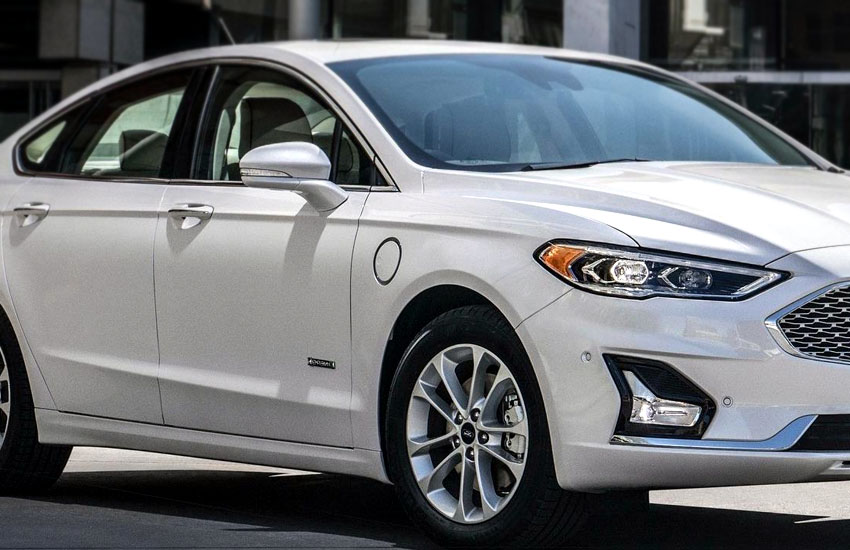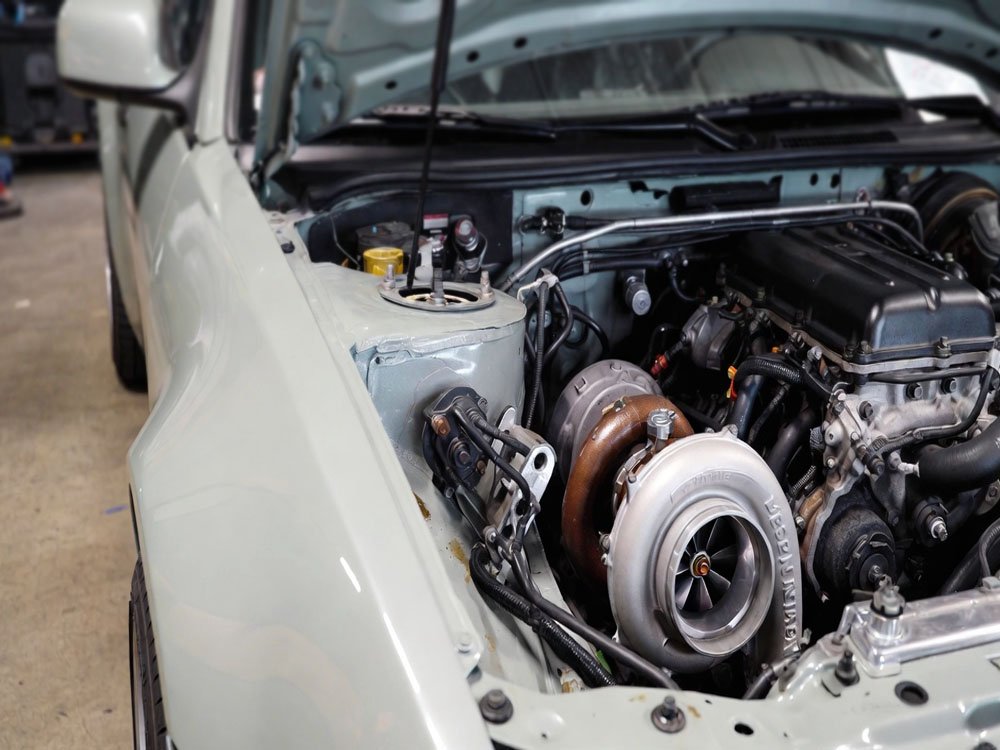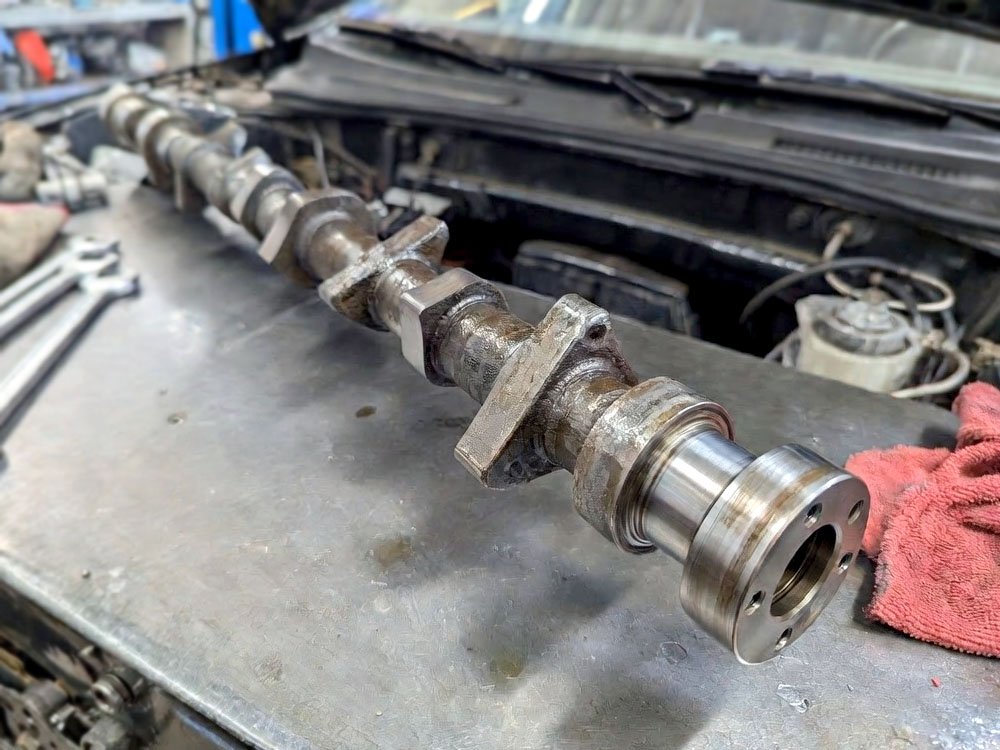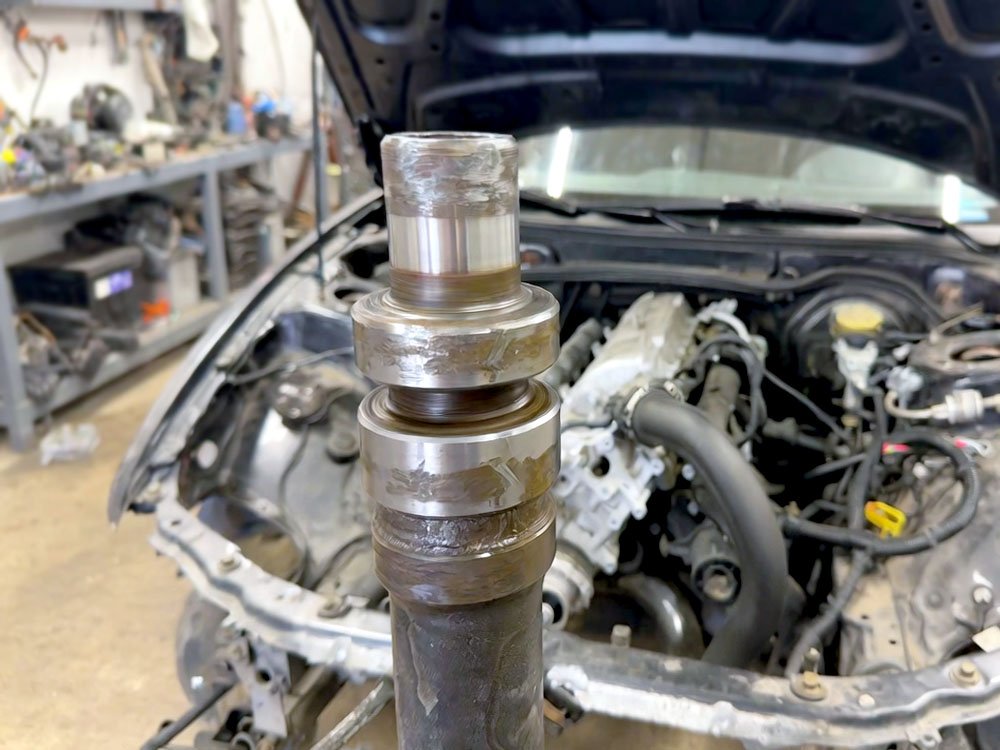Your car might make a clunking noise when you’re reversing, and that’s a problem many drivers face. This sound can be pretty annoying and might make you worry about what’s wrong. In this blog post, we’ll break down why your car is making that noise and what you can do about it. We’ll go over some common causes, like worn-out parts or loose components, and offer tips on how to fix the issue or when to see a mechanic. So, keep reading to find out how to get your car back to running smoothly without all the clunks.
Common Causes of Car Makes Clunking Noise When Reversing
If your car makes a clunking noise when reversing, it might be due to a few common issues:
Worn or Damaged CV Joints
If your car makes a clunking noise when you reverse, it could be because of worn or damaged CV joints. These joints help move power from your engine to your wheels. When they get old or damaged, they might make noise, especially when you are driving in reverse.
Faulty Transmission Mounts
Another reason for the noise might be faulty transmission mounts. These mounts keep your transmission in place. If they get worn out, your transmission might move around too much. This can cause clunking sounds, especially when you are reversing.
Bad Differential
The differential is a part that helps your wheels turn at different speeds. If the differential is bad or damaged, it can create clunking noises when you reverse. This is because the differential is struggling to do its job properly.
Loose or Broken Suspension Components
Your car’s suspension system has many parts, like control arms and bushings. If any of these parts are loose or broken, they might cause clunking sounds when you are reversing. The suspension system helps keep your ride smooth, so any issues here can lead to noise.
Worn Out U-Joints
In some cars, especially rear-wheel-drive ones, there are U-joints in the driveshaft. If these joints are worn out, they can make a clunking noise when you reverse. These joints help transfer power to the wheels, so if they are damaged, you might hear a noise.
How to Fix Car Makes Clunking Noise When Reversing

Check and Replace CV Joints
If your car makes a clunking noise when you reverse, start by checking the CV joints. CV joints are parts that help power from the engine reach the wheels. Over time, these joints can wear out or get damaged. To check them, look for any cracks or tears in the CV boot, which is the rubber cover around the joint. If you see any damage or if the joints seem loose, they need to be replaced.
Replacing CV joints usually involves removing the wheel and the axle. A mechanic will need to take apart some parts to reach the CV joint. They will then replace the worn or damaged joint with a new one. After installing the new joint, the mechanic will put everything back together and make sure everything is secure. This repair will help reduce or stop the clunking noise when you reverse your car.
If you’re not comfortable doing this yourself, it’s best to take your car to a professional mechanic. They have the tools and experience to do the job correctly. They can also check if there are other issues that might be causing the noise. Keeping your CV joints in good condition is important for a smooth and quiet ride.
Replace Faulty Transmission Mounts
Faulty transmission mounts can also cause a clunking noise when you reverse. Transmission mounts hold the transmission in place and absorb vibrations. Over time, these mounts can become worn out or damaged, making them less effective.
To check if your transmission mounts are the problem, you need to look for signs of wear or damage. This might include cracked rubber or broken metal parts. If you see any issues, the mounts will need to be replaced. Replacing transmission mounts involves lifting the car and supporting the transmission. A mechanic will remove the old mounts and install new ones. They will also check if the transmission is properly aligned.
After replacing the mounts, the clunking noise should be reduced or eliminated. It’s important to have a mechanic do this job to ensure it’s done correctly. They will have the right tools and knowledge to make sure the transmission is secure and working properly. Good transmission mounts help keep your car running smoothly and quietly.
Repair or Replace the Differential
The differential is a part that helps your wheels turn at different speeds. If it’s damaged or worn out, it can cause clunking noises when you reverse. To fix this, a mechanic will need to inspect the differential for any problems.
The inspection involves looking for signs of wear or damage, such as metal shavings in the differential fluid or unusual noises when the car is moving. If the differential is found to be faulty, it may need to be repaired or replaced. Repairing the differential might involve fixing or replacing internal gears and bearings. If it’s beyond repair, a new differential will be installed.
Replacing or repairing a differential can be a complex job, so it’s best to have a professional mechanic handle it. They will ensure that the differential is properly fixed or replaced, which will help stop the clunking noise and keep your car running smoothly.
Fix or Replace Suspension Components
The suspension system in your car helps keep your ride smooth. If there are loose or broken parts, like control arms or bushings, it can cause clunking noises when you reverse. To fix this, start by checking the suspension system for any signs of damage.
Look for loose or worn-out parts. If you find any broken or damaged components, they will need to be replaced. Replacing suspension parts involves removing the damaged parts and installing new ones. This can include control arms, bushings, or other components depending on what’s worn out.
A mechanic will need to lift your car to access the suspension system and make the necessary repairs or replacements. After fixing or replacing the parts, the clunking noise should stop. It’s important to have a professional handle this job to ensure everything is installed correctly and your suspension system works as it should.
Replace Worn Out U-Joints
If your car is rear-wheel drive, worn-out U-joints can cause clunking noises when you reverse. U-joints are parts in the driveshaft that help transfer power from the engine to the wheels. To check if the U-joints are the problem, you need to inspect them for any signs of wear or damage.
Look for any play or movement in the U-joints. If they are worn out, they should be replaced. Replacing U-joints involves removing the driveshaft from the vehicle. A mechanic will need to take apart some parts to reach the U-joints, then replace the old ones with new ones. After installing the new U-joints, the mechanic will put everything back together and ensure the driveshaft is properly aligned.
If you’re not familiar with this process, it’s best to have a professional do it for you. They have the tools and experience to replace U-joints correctly. Proper maintenance of U-joints will help reduce or stop the clunking noise and keep your car running smoothly.
I hope this guide helps you fix that clunking noise when reversing your car. With these steps, you should be able to find and fix the issue. Remember, if you’re unsure, it’s always best to ask a mechanic for help.
Questions in Your Mind
Is it Normal for a Car to Make Noise When Reversing?
No, it’s not normal for a car to make clunking or loud noises when reversing. If you hear unusual sounds, it might indicate a problem with your vehicle that needs to be checked by a mechanic.
Can a Worn-out Axle Cause Clunking Noise When Reversing?
Yes, a worn-out axle can cause clunking noises when reversing. The axle helps transfer power to the wheels, and if it’s damaged, it can make a clunking sound.
Do I Need to Replace My Transmission Fluid if I Hear Clunking When Reversing?
Clunking noises might not always be caused by transmission fluid issues, but if the fluid is low or dirty, it can contribute to transmission problems. It’s a good idea to have your transmission fluid checked and replaced if needed.
Can a Loose Exhaust System Cause a Clunking Noise When Reversing?
Yes, a loose or damaged exhaust system can cause clunking noises. If the exhaust system hangs lower than it should or has broken parts, it can make noise when the car moves.
Is It Safe to Drive a Car That Makes a Clunking Noise When Reversing?
Driving a car with a clunking noise is not recommended, as it can indicate serious issues. It’s best to have the problem diagnosed and repaired to ensure your safety and prevent further damage.
Can Bad Wheel Bearings Cause Clunking Noises When Reversing?
Yes, bad wheel bearings can cause clunking noises when reversing. Wheel bearings allow the wheels to turn smoothly, and if they are worn out, they can make noise.
Do I Need a Professional to Diagnose a Clunking Noise in My Car?
Yes, it’s best to have a professional mechanic diagnose the clunking noise. They have the tools and expertise to accurately identify the cause of the noise and recommend the right repairs.
Can Faulty Engine Mounts Cause Clunking When Reversing?
Yes, faulty engine mounts can cause clunking noises when reversing. Engine mounts hold the engine in place, and if they are damaged or worn out, they can cause the engine to move around and make noise.
Is It Possible for a Clunking Noise to Indicate a Transmission Problem?
Yes, a clunking noise can indicate a transmission problem. Issues with the transmission, such as worn gears or damaged components, can cause clunking sounds, especially when reversing.
Do I Need to Check My Vehicle’s Alignment if I Hear Clunking Noise When Reversing?
While alignment issues are less likely to cause clunking noises, it’s a good idea to have your vehicle’s alignment checked if you hear unusual sounds. Misalignment can lead to other issues that might contribute to noise.


